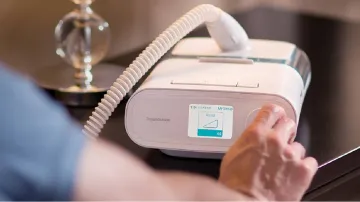Dutch healthcare company Philips has announced that it has successfully addressed the issue of faulty sleep therapy devices in India. The company states that based on current tests, continued use of these devices is not likely to cause any significant health risks. Philips had come under scrutiny after it was discovered that certain models of Bi-Level Positive Airway Pressure (BiPAP) machines were prone to foam degradation, which could lead to breathing problems and other health issues for users.
BiPAP and Continuous Positive Airway Pressure (CPAP) therapy devices are commonly used to treat sleep apnea, a serious sleep disorder characterized by repeated starts and stops in breathing. Recently, in June 2021, Philips issued a field safety notice concerning the safety of its CPAP and BiPAP devices. The notice highlighted concerns regarding the degradation of the sound abatement foam, which can lead to the release of harmful particles and chemicals into the air pathway.
Several users reported experiencing symptoms such as headaches and sinus infections, which were likely caused by exposure to black debris and emitted chemicals. In response to this, a notice was issued advising users to stop using the device immediately, register for corrective action, and consult with healthcare providers for alternative treatments. Philips offered support through a hotline and website in India.
Philips India has stated that they no longer sell old devices with polyester-based polyurethane (PE-PUR) sound abatement foam. Instead, all devices being sold in India now use new silicone sound abatement foam, which is commonly used in the medical device industry. These products are approved for sale in India by the CDSCO.
The company has not disclosed the number of CPAP and BiPAP devices sold in India. There is also no information available on how many of these devices have been replaced. It's not clear whether they have reached out to Indian consumers regarding the issues with these machines. Recently, Philips agreed to pay $1.1 billion to settle lawsuits from users in the US against some of the company's sleep therapy machines.
ALSO READ: What is brittle bone disease? Types, causes, symptoms and treatment
